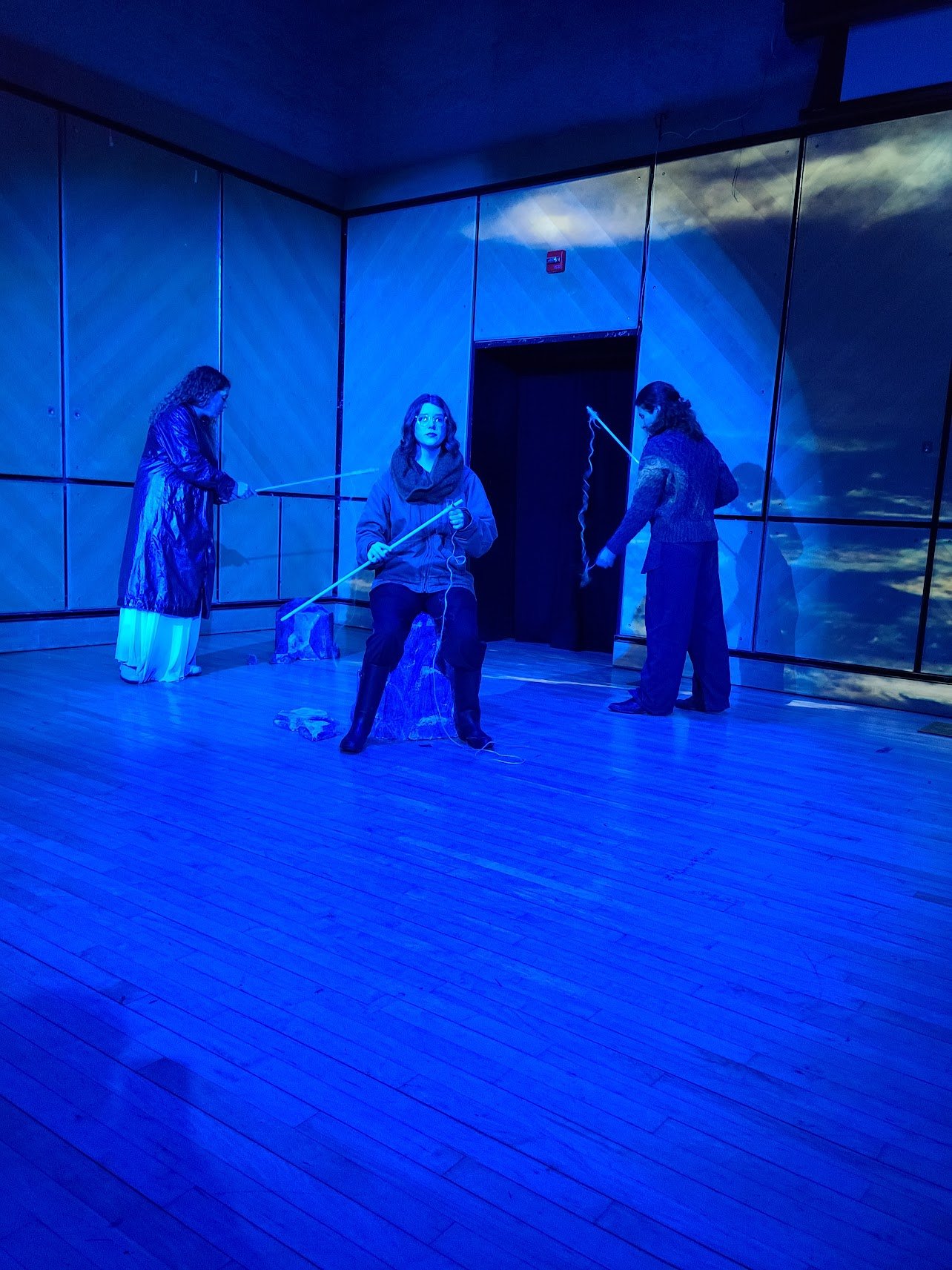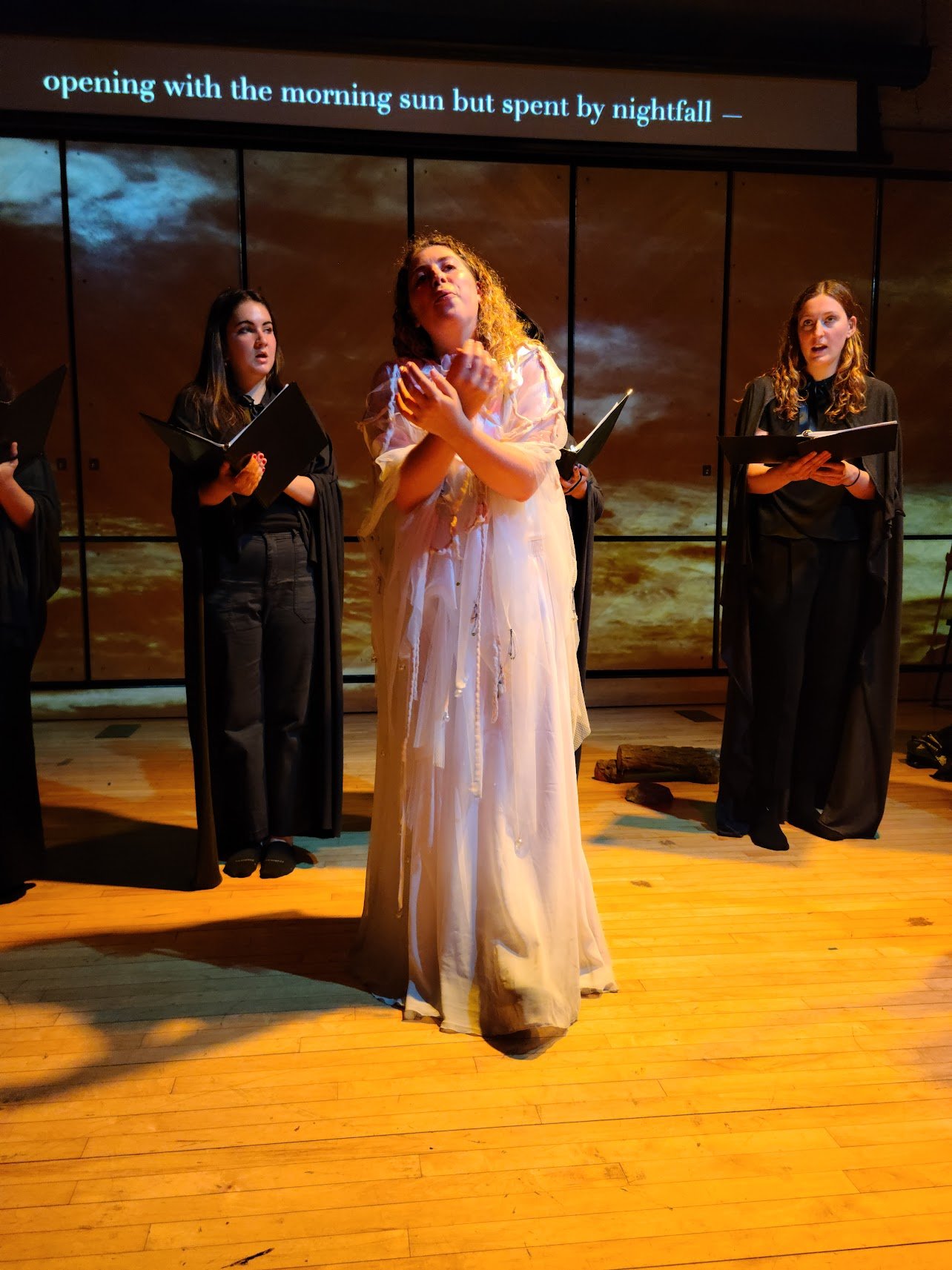Passage (2023)
General Information
Commissioner: The Opera Theatre of Yale College
Written: May 2022 – April 2023
Duration: ca. 70’, excluding optional intermission
Instrumentation: mezzo-soprano + baritone; SSA chorus; fl + cl/bcl + vln + vcl + pf + perc + electronics (“pierrot+” ensemble). Optionally, all instrumentalists double on handbells.
Text: Libretto by Adam Haliburton
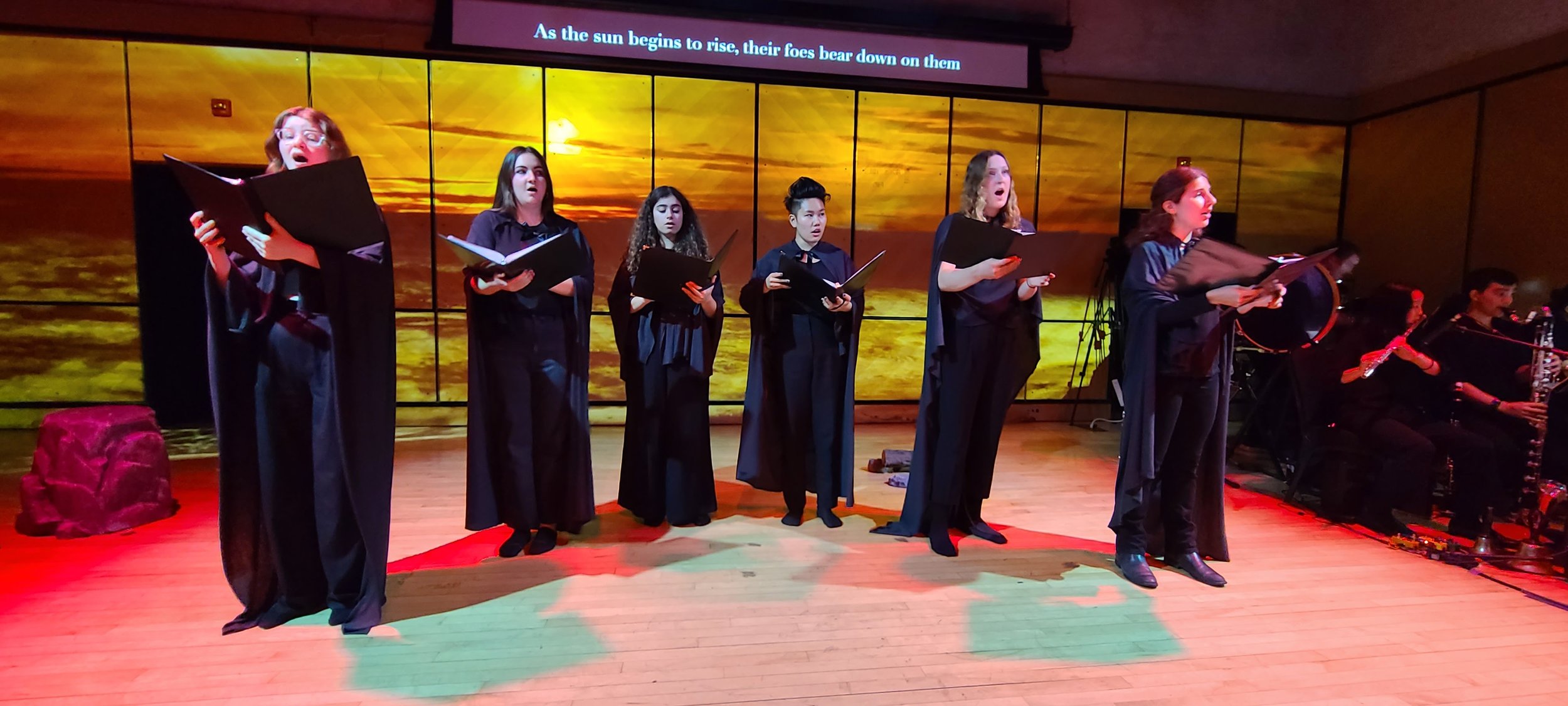
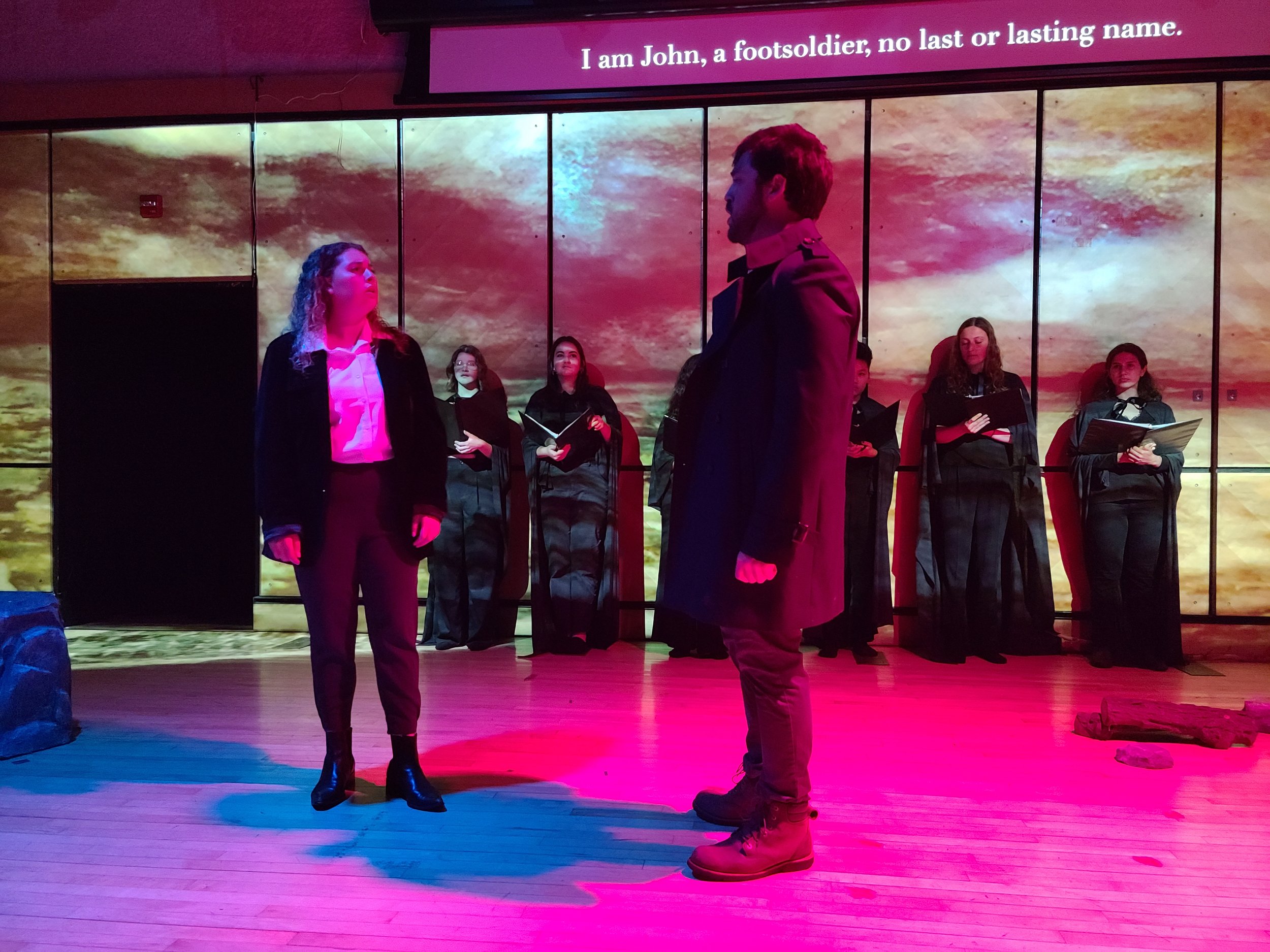
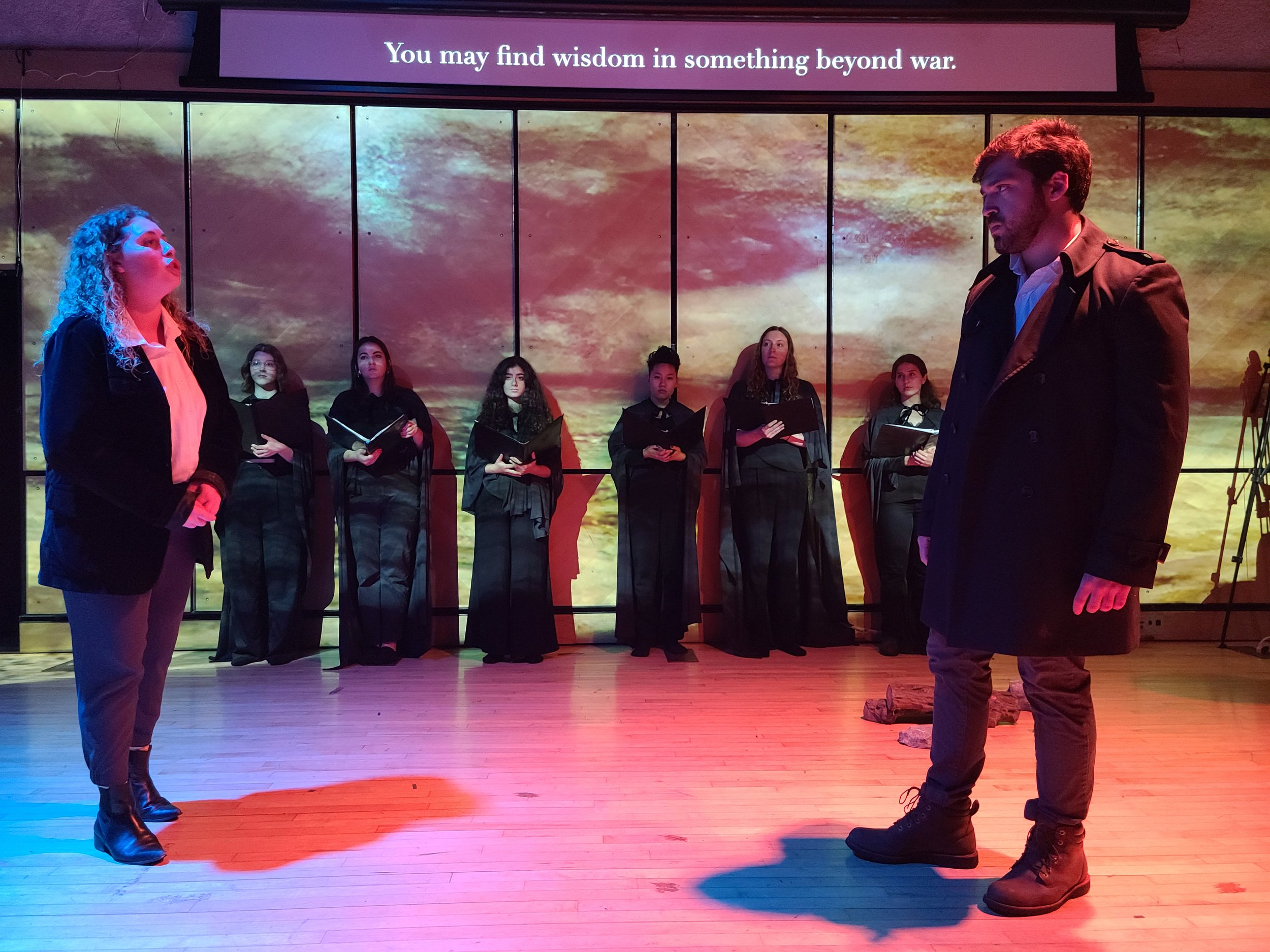
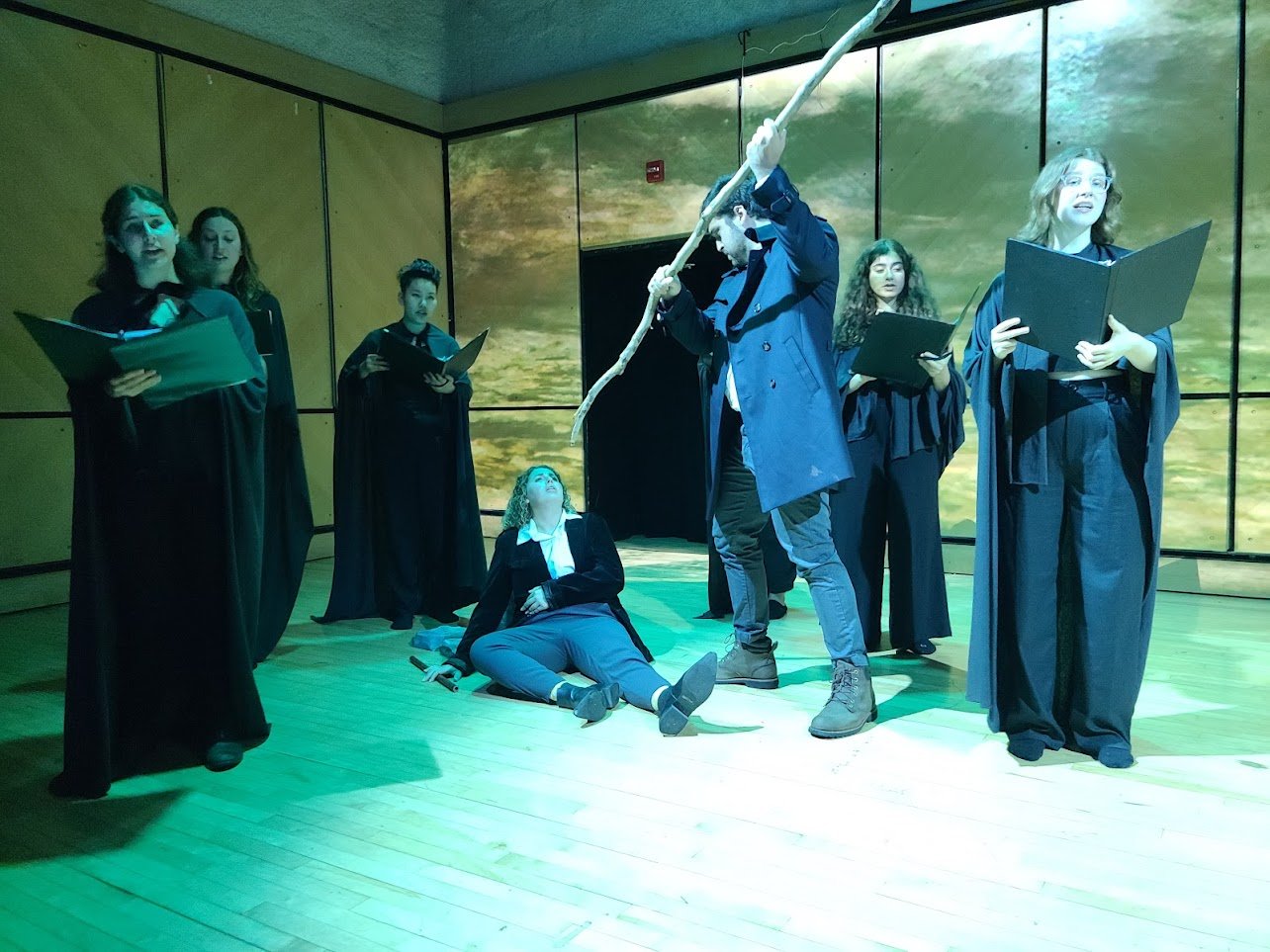
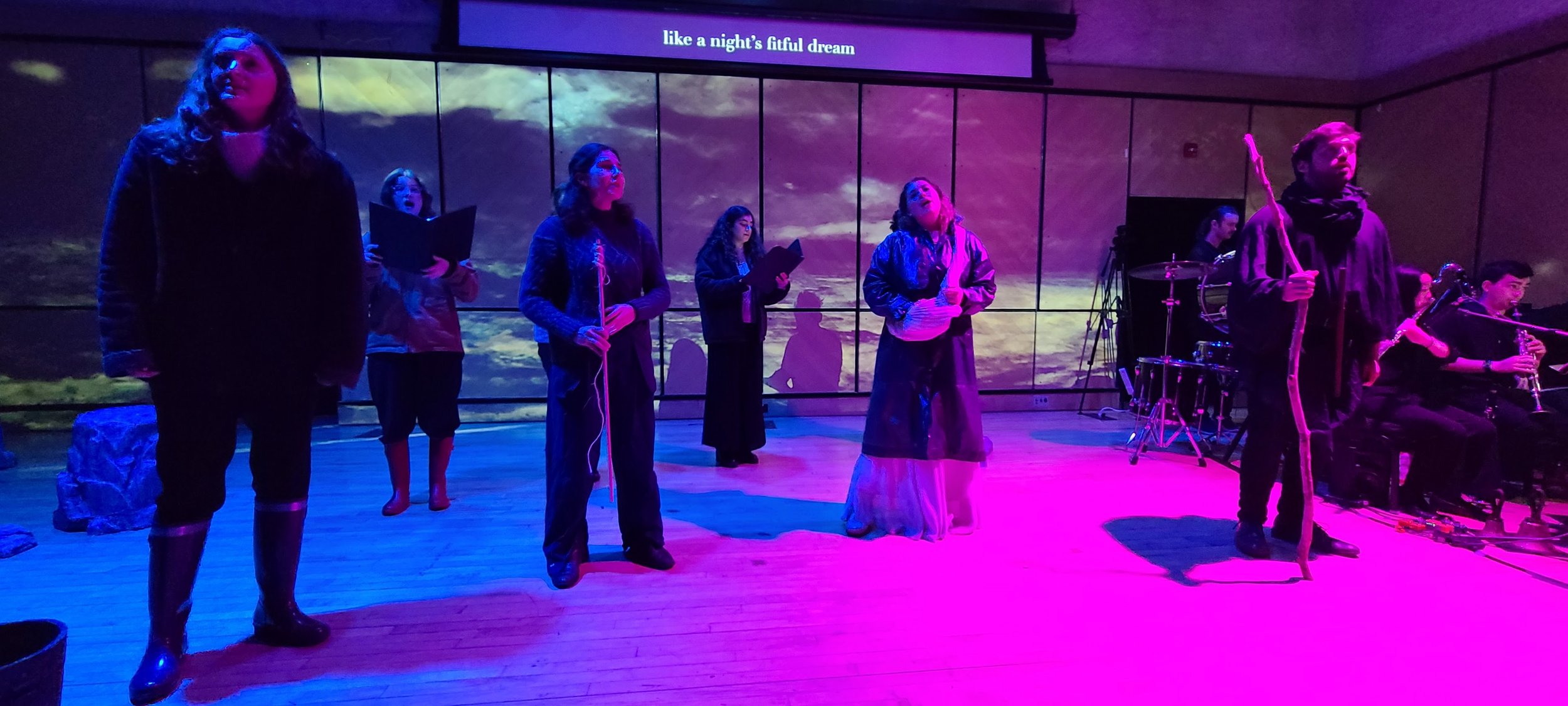
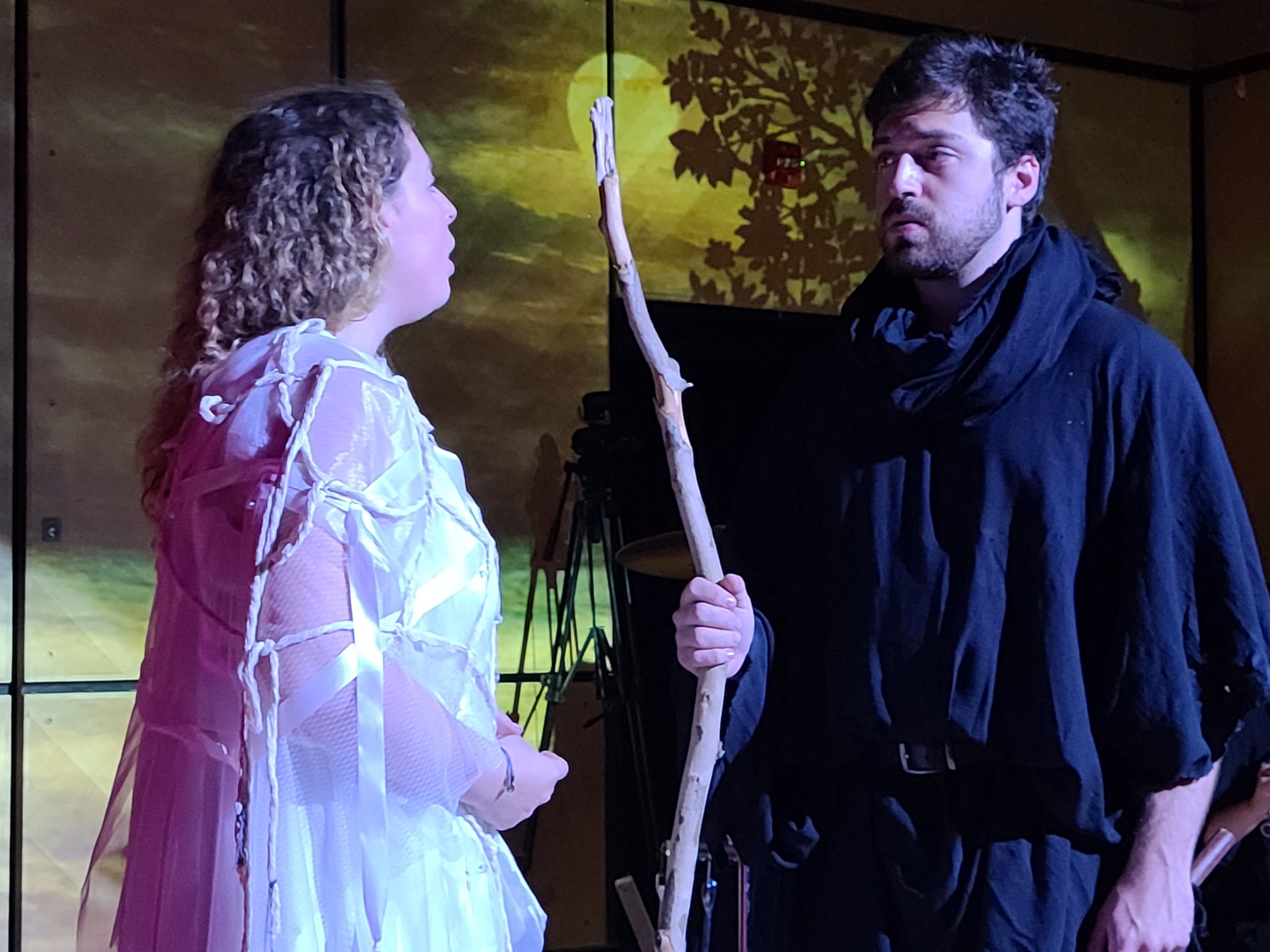
Roles:
The Young Soldier: light mezzo-soprano
John: lyric baritone
Various Fishermen, Solders: S/A taken from chorus
SSA Chorus – at least 6 singers, at most 15 singers
Performance History
April 20, 22, and 23, 2023: The Opera Theatre of Yale College and the Yale Undergraduate Chamber Orchestra in the Saybrook Underbrook, Yale University, New Haven, CT; stage direction by Joaquín Lara Midkiff, music direction by Benjamin Beckman. Lena Goldstein (The Young Soldier), Weston Kerekes (John); . Chorus: Ava Gaughan, Yara Chami, Katie Gurney, Thisbe Wu, Lucy Ellis, Jacqueline Kaskel. Pit: Sarah Moon (flute), Jalen Li (clarinets), Adam Winograd (violin), Sean Liu (cello), Davis Morgenstern (piano), Zahra Virani and Max Hammond (percussion). Production design by Cleo Maloney, projection design by John Horzen and Christian Killada; stage management by Samantha Yera and Maria Arozamena. (World Premiere)
Perusal Score
~ This score below is intended for perusal purposes only, and may not be used for performance. To obtain performance materials, please click here. Thank you! ~
Synopsis
Act I: Two armies are camped at night but just before dawn, the retreating army on a shore. The Young Soldier plays a tune on his grandfather’s flute; John, an enemy soldier, deserts his post as watchman to seek out the source of the sound, entranced by the music. At daybreak, the army on the shore is routed in battle, and flees to their ships in retreat, though the Young Soldier returns to shore, having realized his flute was left behind in the chaos. John, seeing the Young Soldier struggle to swim back out to the ships, challenges him to fight, hoping to redeem himself from his misconduct the past night; the Young Soldier returns to shore, realizing the impossibility of reaching the ships and choosing, rather than drown, to die in battle – a more honorable death. John, clearly a more able and skilled soldier, easily bests the Young Soldier in battle. After dealing a grave blow, the Young Soldier is knocked to the ground; his flute falls to the ground. John immediately realizes that the Young Soldier was the source of the music he had heard the night prior, and at first cannot bring himself to kill such an artist, but the rapid approach of men from his army forces his hand. To save himself from the punishment of his desertion and of letting an enemy soldier escape, John kills the Young Soldier.
Act II: (40 years after the events of Act I. John has become a priest, forever grieving his murder of the Young Soldier) A group of fishermen toil on a beach, the same site as the murder. John finds his way down to the shore, making a pilgrimage to the site of his crime. As John arrives, all the fishermen but one have left the shore, as a thunderstorm is clearly moving in. After questioning, John explains to the lone fisherman that he has returned to the shore to bury the young soldier’s flute, which he has kept with him in the forty years since the murder (though never having learned to play), hoping to escape a recurring nightmare that has haunted him ever since. The fisherman asks to play the flute “once more” before its burial; John is astounded, and the fisherman reveals himself to be the ghost of the Young Soldier. In cryptic verse, the Ghost explains that he has returned to that shore to prevent the flute’s untimely burial, and extends forgiveness to John, conditional on the promise that John learns to play the instrument and perpetuate its song in the world. John consents and the Ghost disappears. John is left alone on the shore, pondering the weight of his actions and his new reality, wondering if his supernatural interaction was just a figment of his imagination.
Awards
Beekman Cannon Friends of Music at Yale Prize
Premiere production supported by a Yale Creative and Performing Arts Award and Yale’s Abraham Beekman Cox Prize
Press
“Beckman ’23’s “Passage” soars as Yale’s first original opera premiere in [15] years. The opera, composed by Benjamin Beckman '23, reinterprets the 14th-century Japanese text “Atsumori.”
Passage is the first original opera to premiere at Yale since [2008], as well as the only evening-length opera by a Yale College student to ever premiere at Yale. It was well-worth the wait. Not simply a performance, rather an emotive, well-paced and exhilarating experience, Passage reinterprets the 14th-century Japanese text Atsumori. Composed by Benjamin Beckman ’23, in part to fulfill his Composition senior project, Passage premiered in the Saybrook College Underbrook on Saturday evening. Presented by the Opera Theater of Yale College, Yale’s only student-run opera organization, and in collaboration with [members of] the Yale Undergraduate Chamber Orchestra, Passage featured librettist Adam Haliburton It was directed by Joaquín Lara Midkiff ’25 and produced by Jacqueline Kaskel ’24. Haliburton, who is completing his doctorate degree in East Asian Languages and Literatures, was quick to note the pleasure of working with Beckman. “[Beckman] combines knowledge, talent, and taste. I was sure about the first two, but when I started to work with him, it was clear he had all three,” Haliburton said. He added that Passage marks the end of more than 10 years at Yale for him, and described the show as a “farewell” to the institution. Passage, which drew from the Noh-period play by Zeami Motokiyo that is a subject of Haliburton’s dissertation, chronicles the trials of competing seaside armies and probes broad philosophical questions surrounding loss, torment, responsibility and absolution. “It’s a pretty interesting structure similar to that of Virginia Woolf’s novel ‘To the Lighthouse,’” Beckman said. “There’s a beginning and an end, but no middle. It’s very cool, how the piece reckons with agency.” Beckman centers the composition on a chilling flute melody that repeats and transforms itself throughout the piece, propelling the show forward with astounding technical clarity. His prowess and intimate knowledge of the opera instrumentation — the ensemble was scored for flute, clarinet doubling bass clarinet, piano, percussion, [violin, cello,] and electronics, alongside the chorus — is lyrically rich. Grounded in the strengths of each individual contributor, Passage offers a resoundingly cinematic experience. Both libretto and score move as one, and this intricacy keeps Passage lively and balanced. Midkiff emphasized the collaboration between Haliburton and Beckman. Indeed, Passage is the epitome of the modern opera: timeless and clear, it is obvious that its primary concern is emotive beauty that is both accessible and engaging. “It’s all about Ben and Adam and the beauty and synergy between the two,” Midkiff added. Beckman, whose orchestral music has been performed by the Los Angeles Philharmonic, the National Youth Orchestra of the United States of America, and the Yale Symphony Orchestra, has been writing art songs since the age of 15, and has written 27 such pieces since. With an extensive catalog of compositions ranging from jazz-fusion to post-rock to traditional Jewish cantillation, Beckman describes himself as creating “a new and unique sound for the modern world.” The Opera Theater of Yale College was founded in the fall of 1998.” – Anabel Moore, for the Yale Daily News
